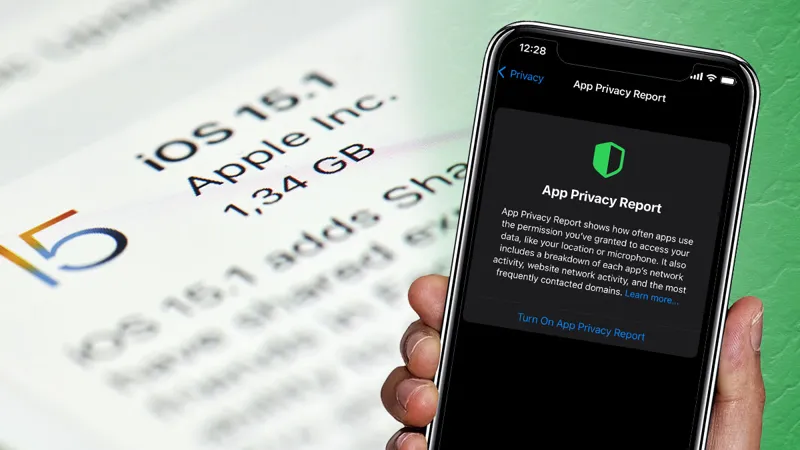
Apple App Privacy Investigation: FCO’s Findings Unveiled
In an increasingly competitive digital landscape, the scrutiny of tech giants like Apple is intensifying, particularly regarding their treatment of third-party developers. Germany’s antitrust watchdog, the Bundeskartellamt (FCO), has been investigating Apple’s app privacy framework since 2022, focusing on potential unfair practices that may favor its own applications over those of competitors. The FCO’s recent preliminary findings suggest that Apple’s App Tracking Transparency framework could be discriminatory, raising concerns about compliance with both German and EU competition laws. As these developments unfold, both Apple and third-party developers are watching closely, aware that the outcomes could reshape the dynamics of app privacy and market competition.
| Aspect | Details |
|---|---|
| Investigation Start | 2022 |
| Regulatory Body | Bundeskartellamt (FCO) |
| Focus of Investigation | Apple’s App Tracking Transparency framework (ATTF) |
| Key Concern | Apple may not treat third-party app developers fairly; potential self-preferencing. |
| Prohibition Imposed | Since April 2023, Apple cannot favor its own services in Germany. |
| EU Regulation | Under the Pan-EU Digital Markets Act (DMA), self-preferencing is also banned. |
| Main Features of ATTF | Allows users to control tracking by third-party apps but may favor Apple’s apps. |
| FCO Findings | 1. Different tracking definitions for third-party vs. Apple apps. 2. Consent dialogues differ in number (up to 4 for third parties, 2 for Apple). 3. Encouragement for consent in Apple’s dialogues vs. decline in third-party dialogues. |
| Andreas Mundt’s Comment | Apple’s ecosystem gives it an unfair advantage in accessing user data for advertising, making it hard for competing apps. |
| Apple’s Response | Apple claims ATTF is clear and gives users control. They are prepared to engage with FCO. |
| Developers’ Concerns | Developers worry about Apple’s double standards in app treatment. |
| Legal Appeal | Apple is appealing the FCO’s authority to apply special abuse powers; court decision expected on March 18, 2025. |
Understanding Apple’s App Tracking Transparency Framework
Apple’s App Tracking Transparency Framework (ATTF) is a feature that lets users control how apps track their data. This means that when you use an app, it will ask if it can track your activity for advertising purposes. If you say no, the app should not collect your data. This is important because it helps protect your privacy while you are using your iPhone or iPad.
However, the Federal Cartel Office (FCO) in Germany is investigating whether Apple follows its own rules fairly. They found that Apple’s own apps may not have the same strict tracking rules as other third-party apps. This raises questions about whether Apple is treating all developers equally and if it is using its power to favor its own services.
Frequently Asked Questions
What is the main focus of the investigation by Germany’s antitrust watchdog on Apple?
The investigation focuses on Apple’s App Tracking Transparency framework and whether it unfairly treats third-party app developers compared to its own apps.
What are the concerns regarding Apple’s App Tracking Transparency (ATTF)?
Concerns include that Apple’s ATTF rules apply strictly to third-party apps but not to Apple’s own data practices, leading to potential self-preferencing.
How does the consent dialogue differ for Apple apps compared to third-party apps?
Apple apps have fewer consent dialogues and different wording, which may encourage users to allow data tracking more easily than third-party apps.
What has the Bundeskartellamt indicated about Apple’s tracking practices?
The Bundeskartellamt believes that Apple’s tracking practices may violate competition laws by not treating third-party apps equally under the ATTF.
What are the implications of the Pan-EU Digital Markets Act (DMA) for Apple?
Under the DMA, Apple is prohibited from favoring its own services, ensuring fair competition in the digital marketplace.
What is Apple’s response to the findings of the Bundeskartellamt?
Apple argues that its tracking transparency features are clear for all developers, asserting that users maintain control over their data.
What is the next step for Apple following this investigation?
Apple has the opportunity to respond to the findings and is appealing the Bundeskartellamt’s authority to exercise special abuse powers.
Summary
Germany’s antitrust authority, the Bundeskartellamt (FCO), has been investigating Apple since 2022 regarding its app privacy practices. The FCO’s initial findings suggest that Apple may be unfairly favoring its own apps over third-party developers, which could violate competition laws. Specifically, the FCO is concerned about Apple’s App Tracking Transparency framework, which applies stricter rules to third-party apps while Apple’s own apps benefit from looser guidelines. This raises competitive issues, as Apple’s practices may disadvantage other app developers. Apple is currently appealing these findings as it faces scrutiny under European regulations.